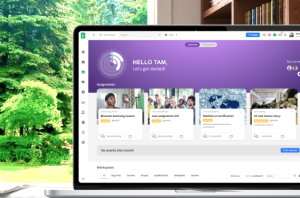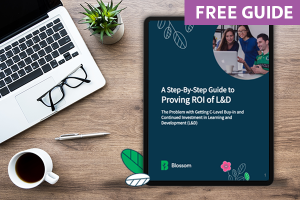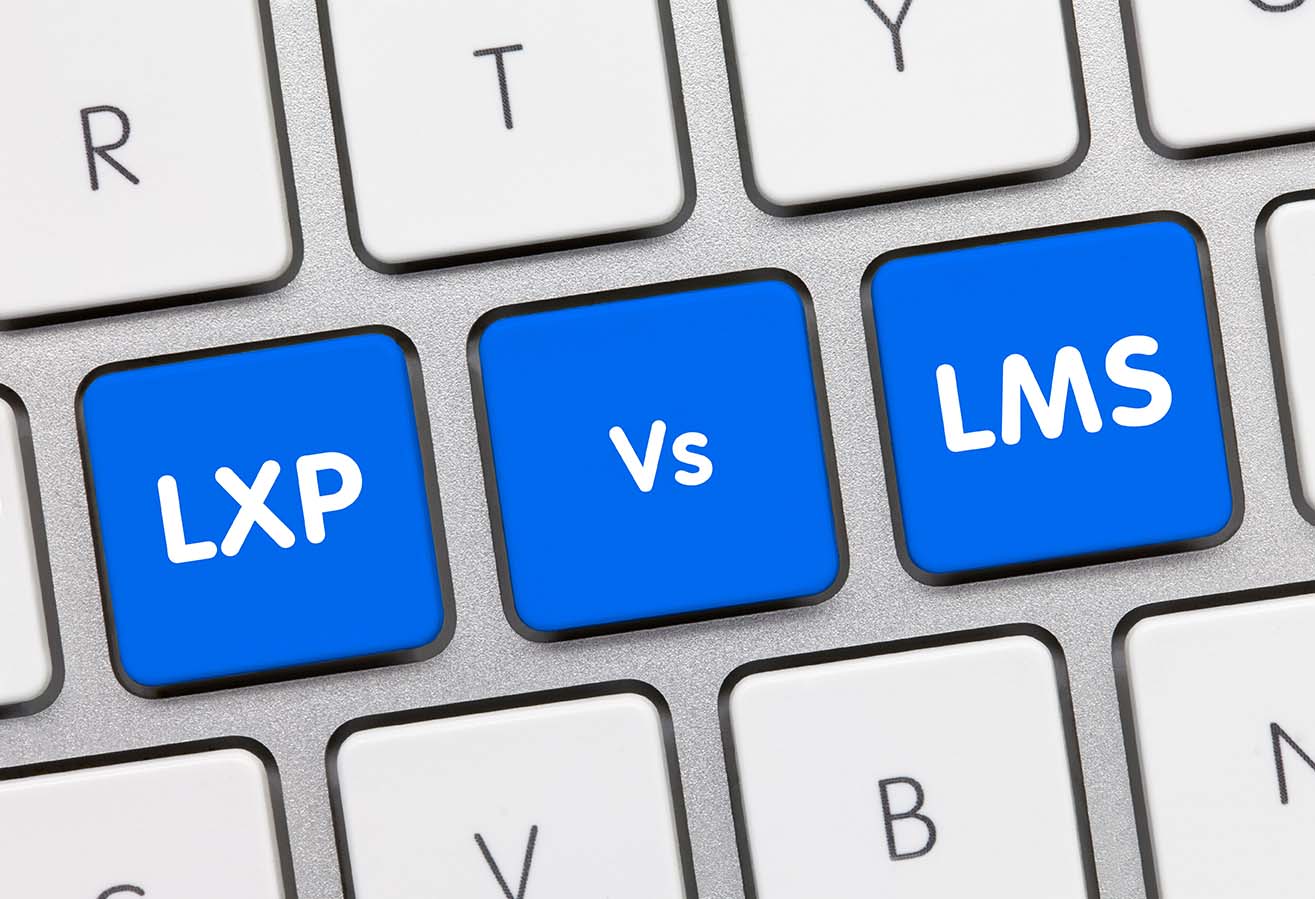So, you’re getting close to making that important decision. With limited choices for high-quality LMS systems on the market, which one is the right one for you?
This is the fourth and final article as part of our series on guidelines for choosing an LMS system to best suit your needs. So, you’re getting close to making that important decision. With limited choices for high-quality LMS systems on the market, which one is the right one for you?
The most important factor in a successful decision is who your system provider is. A mediocre LMS system with an outstanding provider is usually a bigger success than an excellent system with a bad provider. So, what we’re aiming for is an excellent system with an equally excellent provider.
These articles are simply guidelines to encourage you to ask the right questions of prospective LMS providers, so you have the information you need to make the perfect decision.
1. The sales process
The sales process provides accurate insight into the levels of reliability, professionalism, and way of working of the particular LMS provider. It highlights what your relationship will be like with them moving forward.
Potential red flags or warning signs could look like this:
- The supplier tells you continually “yes our software does that” and “it will be fine”. Are they expanding on why, or just telling you what they think you want to hear? Naturally, there’s a slight difference between the way their LMS works with your expectations, but there needs to be honesty to explain this.
- The supplier speaks ill of other competing suppliers. This is not a good sign. A good salesperson of a trusted company will use your time to present the advantages of their system rather than slandering their competitors. This gives you insight into their company culture, so don’t be drawn into their gossip!
- The most important thing to remember is that if you experience unreliability during the sales process, then you will most likely encounter problems setting up the system and using it day-to-day.
2. Expect clarity
The supplier must act with complete transparency with you in everything they provide and everything they can’t provide. How much will additions cost? Is this a set price or is it subject to be increased?
Look out for either an overly complex or equally simplistic offer from the salesperson. These are signs they could be trying to confuse you or a sign of a lack of professionalism. You want clarity in the quote they give you.
Your LMS quotation should show you:
- What exactly do you receive as part of the contract?
- What is the cost structure?
- When will you be required to make one-time payments?
3. Gauge how much experience the LMS provider has
Here’s what you should investigate:
- What’s the supplier’s experience in deployment and support?
- How many systems does the LMS support at the same time?
- How many LMS systems have they already launched?
- How familiar is the supplier with their own system?
- Do they know how to provide you with simple workarounds for capabilities that currently aren’t developed in the system?
- Does the supplier have experience in setting up complex interfaces with payroll systems?
- What is the level of commitment you are given by the LMS provider?
- How big is the team of the LMS provider?
- How many existing customers does the provider have?
4. What is the supplier’s experience with other organisations similar to yours?
There’s a huge difference between a system that’s suitable for a small organisation and an enterprise-level solution. One system might work perfectly for a hospital, but an insurance company would find it unwieldy and difficult to use.
The easiest way to check this is to ask the provider to name clients that are similar to yours, in terms of size and industry type, so you can ask them for an honest review.
5. How does the supplier source their profit?
This is an important point to check, so you know what to expect from a supplier. What does the supplier gain from your contract with them?
If the supplier only profits from the sale of user licences, they may devote all their efforts to increasing the number of user licences you purchase and making you purchase as many add-on features as possible.
Or, if the supplier only profits from the sale of professional services, then it’s very likely that the system you’ve purchased is only your “foot in the door.” They will strive to profit as much as possible from the sale of additional development, technical consultancy and professional services.
6. What is the financial stability of the supplier?
Just as you would perform an inspection on a renovation contractor before you let them into your home, you must perform a similar inspection of the supplier before you sign any contracts. Getting a guarantee from the supplier themselves about their own financial security won’t really help you. You’re not looking for compensation; you’re looking for a successful and long-lasting partner relationship.
When looking for key systems suppliers, security and stability are primary concerns that could easily become a sticking point within a business continuity plan. If you’re at all concerned about the supplier’s stability, research other suppliers. Listen to your intuition and don’t take a risk as big as this one.
7. Work towards a mutually beneficial partnership
A beneficial partnership has two sides to it. You’re required to invest your time into maintaining a healthy partnership. This involves giving praise. Very quickly, you’ll see if you have a trustworthy partner on the other side. Once you’ve achieved that level of partnership, you’ll see increased energy invested into your project.
8. What about the support and service level?
Ask for an exact specification of what support you’ll receive:
- Who provides the support? Is it the company that created the LMS system, or is it the supplier who is in partnership with them? Do they outsource their LMS support provision?
- Is there support for translation?
- What are the hours of the support centre?
- What is the size of the support team?
- Who is your support request escalated to when help is needed?
- Are the service calls documented so it’s possible to know when the call took place, the length of the call, and how the service call was handled?
- What is the experience of the support team?
An LMS is a key system within a company. Any downtime could have significant cost and productivity impacts on the company. Deeply understanding your levels of support will help you avert any costly mistakes.
9. What is the plan for deployment?
Setting up your LMS can be a long drawn out and clunky process without a defined deployment plan that you agree to beforehand.
Ask for clarification on these points in your deployment plan:
- What is the work plan? What are the specific milestones and what schedule are these milestones on?
- Is there an organised method behind the deployment process?
- Do they use a project management tool during the deployment process?
- What is the size of the team that participates in the deployment process?
- What is the experience and seniority of the deployment team?
- Ask customers who have completed an LMS deployment with this supplier – how did their deployment go?
10. Identify possible points of failure?
Check with the supplier: what potential problems might arise and what have their main points of failure been in the past? If the supplier answers that basically everything will be fine and they can’t identify any concerns and how they’d go about overcoming them, that should flag up concerns.
Naturally, there will be points of failure during the deployment process. It’s a great sign if the supplier can explain what these are and show how they will best support and overcome them.
11. Gain a personal contact
The success of deploying the LMS system can rise, and fall based on the quality of interpersonal relationships between you and the supplier. Meet the people who are appointed to work directly with you to set up your LMS system. Reach them either in person or on a video call. Understand how they work and what their approach to the project is. If this approach doesn’t align with what you need, then you can ask to change your contact person for someone else in the organisation.
12. Expect a high level of professionalism
Professionalism is a critical issue for the success of your LMS system. You need to know that your technology partner will continuously work professionally, they know how to do their job, and they will carry out your LMS deployment with success and a positive attitude.
Here’s what to look out for to recognise a high level of professionalism:
- They take personal responsibility for all their actions and any mistakes made during the process.
- They take great pride in their product and they’re passionate about it.
- They’re not satisfied with a sub-standard installation of your LMS. They seek to put things right.
- They put effort into developing a relationship with you and learning about your organisation’s exact needs.
- They’re highly respectful and speak appropriately in all communication.
- They deeply care about the small details.
- They are operationally flexible so they can deal with unplanned situations with care and enthusiasm.
These guidelines help you identify both green and red flags for the LMS partner. Even if their product is seemingly perfect and rich in existing features, if they don’t conduct themselves as friendly, attentive to your needs, and professional, we advise you to avoid that supplier. Our next article will provide advice on the next stage of the LMS process: drawing up an agreement.
Blossom’s blog contains more tips and information from the digital world for complete organisational management.








